Three Generations of Yumai's Guardians
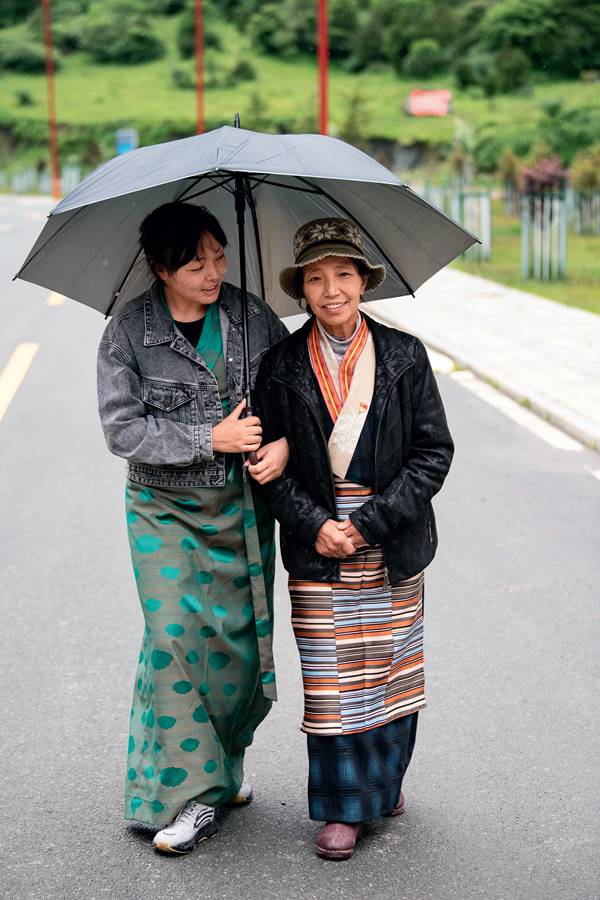
Zhoigar and Yangzom are sisters who live in Yumai, a town in Lhunze County, in Shannan, a city in Southwest China's Tibet Autonomous Region. Since the 1960s, the sisters, who are ethnic Tibetan, have followed their father, Sangye Chupa, as they have helped safeguard border areas in Southwest China. For three generations, members of the herding family have raised China's national flag as they have patrolled the nation's border areas. The Tibetan family's story has moved numerous people from across the country.
National Flag Flying High
Yumai is a remote town hidden in the southern foothills of the Himalayas. It is located in the border area between China and India. When Yumai was established in 1959, as an administrative town, Sangye Chupa became the first head of the small town. During the following three decades, the majority of local residents relocated to other places, due to the inconvenience of traveling from Yumai to somewhere outside the mountain. The house owned by Sangye Chupa's family served as the government office in Yumai.
Life on the plateau was extremely hard in those days. Yumai was like an "isolated island" each winter, between November and May; during that season, the town was "locked out" by heavy snowfall. But Sangye Chupa insisted on staying in Yumai.
"If my family left as well, who would help safeguard this territory of our country? Countless people sacrificed to liberate Tibet. The hardships we need to go through are not comparable with what they endured,"Sangye Chupa has been quoted as saying. Zhoigar and Yangzom clearly remember their father speaking those words when they were young.
Sangye Chupa once bought two pieces of cloth, one red and the other yellow. Zhoigar and Yangzom wondered what their father was going to do with the cloth. After dinner, the girls watched as their father cut the cloth and sewed it into the Chinese national flag — a red flag with five stars in yellow. "This is a handmade national flag, one of the most treasurable things of our Chinese nation," Sangye Chupa told his children. He then raised the flag at their residence in Yumai.
After Sangye Chupa's wife died, in the winter of 1978, he stayed in Yumai with their daughters, and he sent his youngest son away from the mountain to study medicine. Since then, Yumai became known as "a town with a mere three residents" — Sangye Chupa, Zhoigar and Yangzom."
Life can be hard and lonely, but we have our motherland to support us. Our home is full of hope," says Yangzom. Zhoigar adds she often thinks about what her father has said, "There (Yumai) is part of the territory of our country. Let our national flag fly high on the land, where we have pastured from generation to generation."
After Sangye Chupa retired, in 1988, Zhoigar became the new head of Yumai, and Yangzom became deputy head. In 1996, Lhunze County started to dispatch cadres to work in Yumai, and the small town, hidden in the snowy mountain, was no longer a town with a mere three residents. Zhoigar and Yangzom both joined the Communist Party of China (CPC) and a Party branch was also established in Yumai that year.
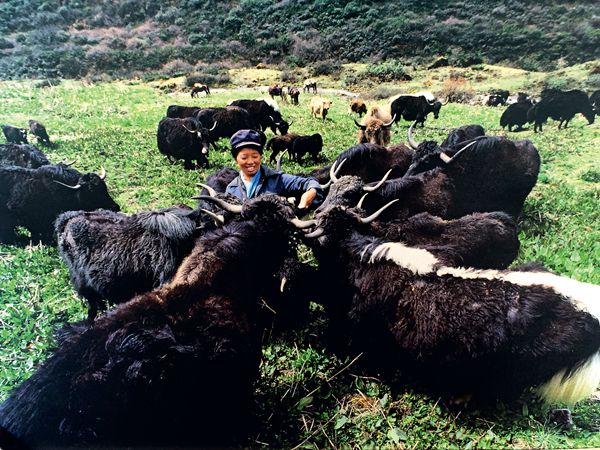
Hometown, Yumai; Motherland, China
In 1997, some media outlets reported about Sangye Chupa's family safeguarding the border areas of Yumai. As more people learned about the "three-resident town," many were deeply moved by the Tibetan family. Some people even wrote letters to Zhoigar and Yangzom, to express their affection for the Tibetan sisters. However, the sisters vowed to their father they would only establish their own families in Yumai. Yangzom wed at 27; Zhoigar, at 35. "Our hometown is Yumai, and our motherland is China. My sister and I never hesitate to stay in and help protect this place," says Yangzom.
Since 1978, when China began implementing its policy of reform and opening-up, the Tibet Autonomous Region has received much more support from the Central Government in its development efforts. A special fund was allocated at the beginning of the 1990s, to improve Yumai's infrastructure construction. A new office building was constructed to house the town's government. Yumai built a health center, hydropower station and a station to receive Satellite TV signals. Sangye Chupa's family moved into a new house, which was furnished with a television and electric lamps.
Sangye Chupa'sgreatest wish was fulfilled in September 2001; construction of a road, which connected Yumai with the region outside the mountain, was completed. Sangye Chupa, then 77, traveled to Lhasa by car. Zhoigar traveled much further; she traveled to Shaoshan, in Central China's Hunan Province, to visit Chairman Mao Zedong's former residence. By the end of 2001, five households, which had a combined 25 residents, had settled down in Yumai. The small town also opened a police station and primary school. During the winter of that year, Sangye Chupa passed away — with no regrets. His last words to his daughters, and to the residents of Yumai were, "Yumai is the place where our ancestors lived, and it is on our motherland. Protect well every grass and tree growing in this place."
Great changes have taken place in Yumai throughout the past few decades. By the end of 2018, nine households, including Zhoigar and Yangzom's families, had moved into a brand-new apartment. The sisters realize the happy life they are enjoying today could not have been achieved without the special care provided by the CPC Central Committee throughout the years. Zhoigar and Yangzom wrote a letter to Xi Jinping, General Secretary of the CPC Central Committee, to describe the tremendous changes they have witnessed in Yumai. To their surprise, they received a reply from Xi, on October 29, 2017. Xi encouraged them to motivate more herders to set down roots in the border area "like galsang flowers," and become guardians of the Chinese territory and builders of a happy hometown. The sisters said receiving a letter from General Secretary Xi was the happiest moment of their lives.
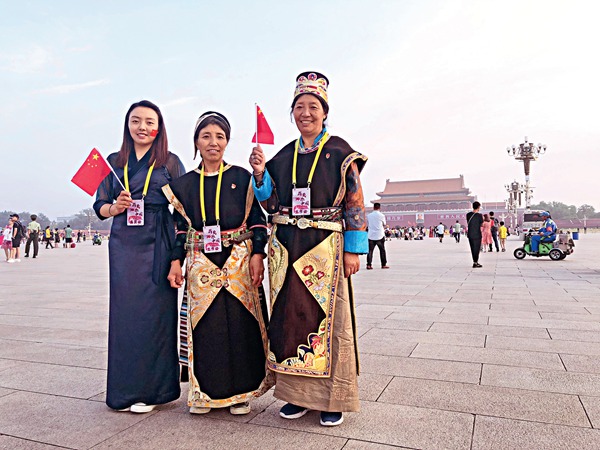
Border, with a Promising Future
After their father died, Zhoigar and Yangzom, with their families, stayed in Yumai to help protect the border. Milking cows, making traditional snacks, weaving bamboo baskets … Life is simple for herders living on the plateau. Zhoigar has three daughters; Yangzom, a son and a daughter. The sisters' children have been educated outside their hometown.
Yangzom's son, Soinam Toinzhub, graduated from college in 2017, when he became the first college graduate in Yumai. He later wrote the civil service exam. "My mother and aunt have followed my grandfather's will and stayed in Yumai. Now, I am listening to my mother's wish, and I will continue protecting our hometown," says Soinam Toinzhub.
Zhoigar's eldest daughter, Pasang Zhoigar, completed her college education in 2019. She currently serves as a village cadre, who specializes in rural revitalization, in Niulintang, a village in Yumai. She wants to learn from her grandfather, mother and aunt, and she wants to pass on the spirit of loving her motherland and safeguarding the border. "Yumai still has great potential for further development. I will shoulder my responsibility, and I will help my fellow villagers build a prosperous hometown," says Pasang Zhoigar.
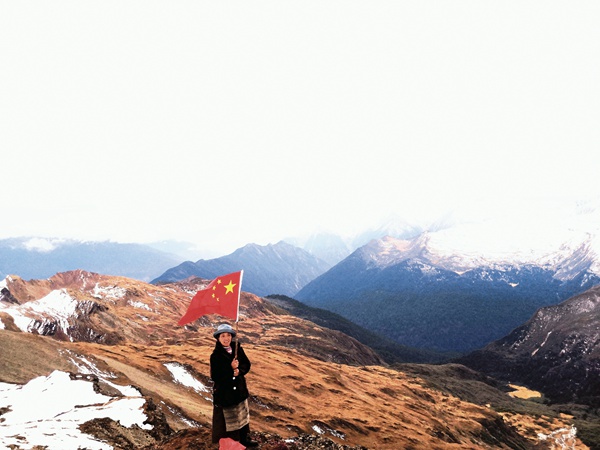
Her younger sister, Chemi Zhoigar (Zhoigar's second daughter), also returned to Yumai after she graduated from college (earlier this year). Zhoigar and Yangzom believed it was important for their children to receive a good education, so they could help build a promising future for Yumai.
"After we went outside and saw the colorful world, we had a deeper love for the beautiful pasture region, on which we grew up," Zhoigar says. She and Yangzom hold firm to their belief that it is their family's mission to lead residents in staying in the area, protecting the region and pouring vigor into Yumai's long-term development.
Photos Supplied by Zhoigar
(Women of China English Monthly December 2021 issue)
Please understand that womenofchina.cn,a non-profit, information-communication website, cannot reach every writer before using articles and images. For copyright issues, please contact us by emailing: website@womenofchina.cn. The articles published and opinions expressed on this website represent the opinions of writers and are not necessarily shared by womenofchina.cn.

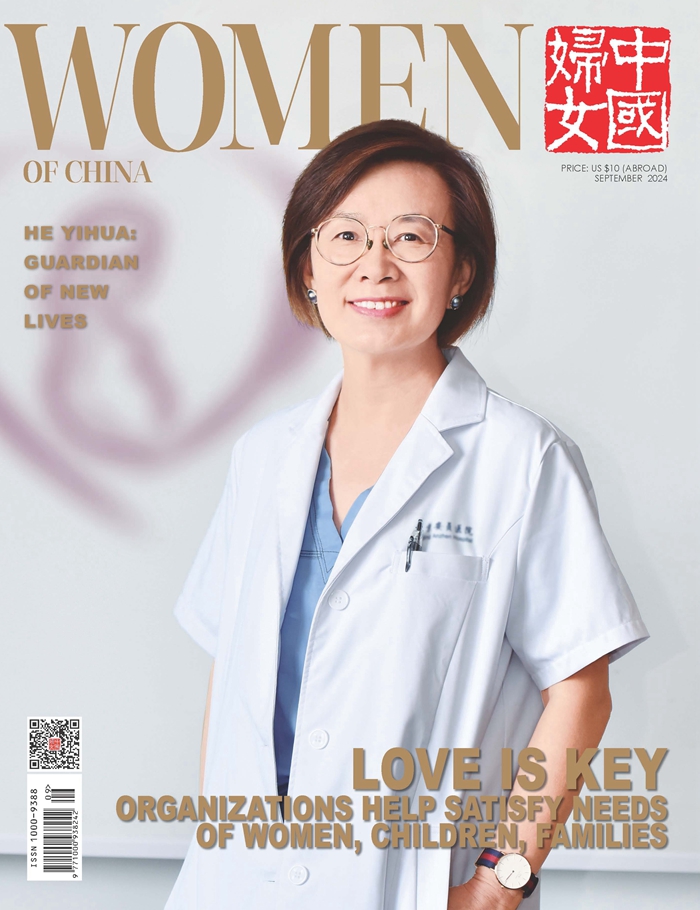


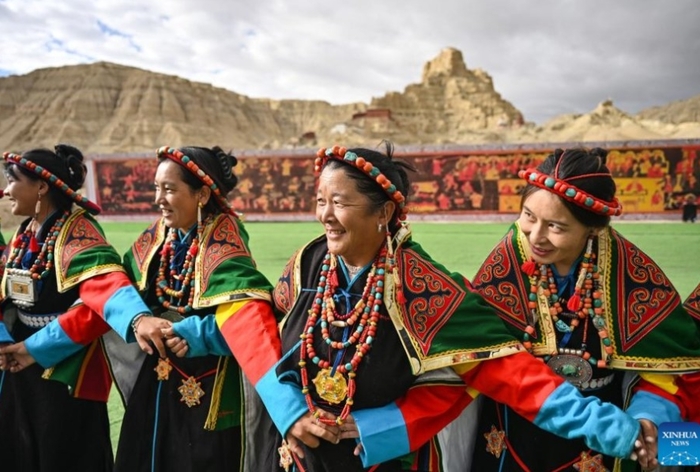
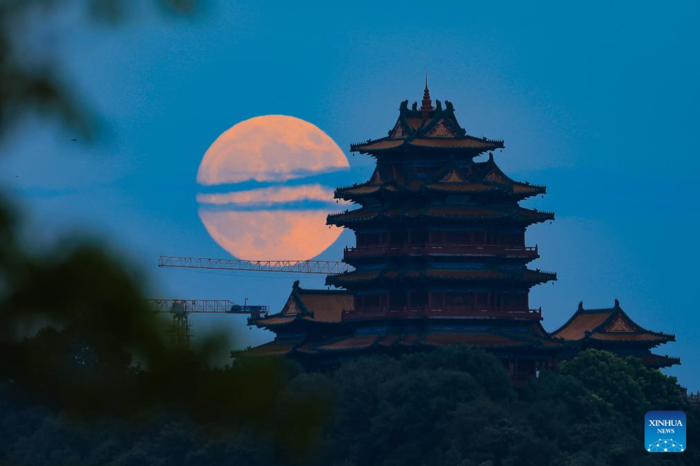
.jpg)

 WeChat
WeChat Weibo
Weibo 京公网安备 11010102004314号
京公网安备 11010102004314号